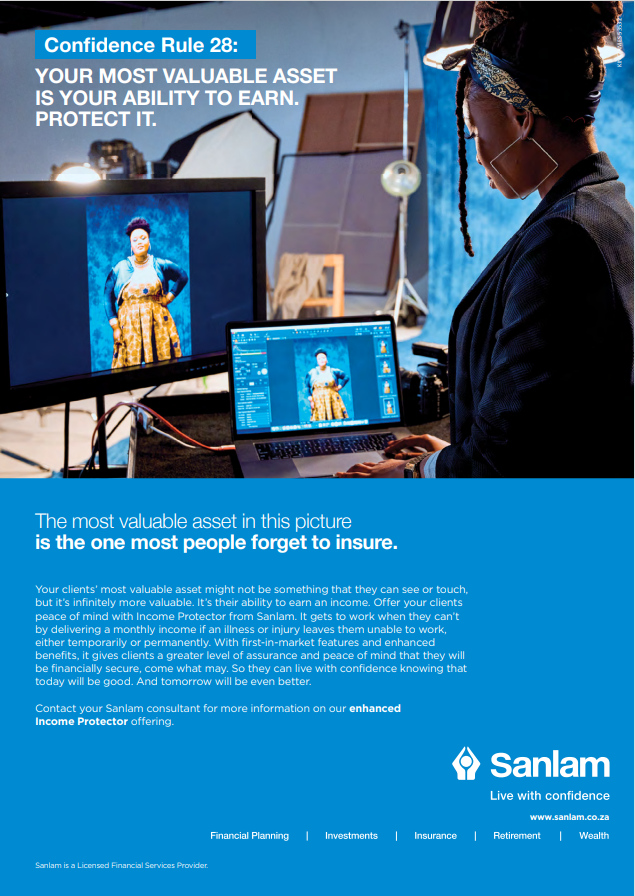
Jason Mellow, Head of MiWay Business Insurance
The past few years have been difficult for most businesses and has proven that now more than ever before, insurance cover is a must-have to provide a buffer against uncertainty and unforeseen risks.
What has changed?
The pandemic, with its associated lockdowns and growth in online shopping, means that more trucks and delivery vehicles are on the road. At the same time, the cost of doing business has increased thanks to petrol price hikes. Furthermore, there has been an increase in risk due to hijackers targeting trucks and courier vehicles.
With many logistics companies having to spend more time on the road, this ultimately increases the risk of accidents.
Longer driving hours has led to driver fatigue, which ultimately results in accidents. A lack of training and management in many cases has also led to poor driver behaviour. Reduction in income for fleet owners has also led in some instances to the insufficient vehicle and tyre maintenance. It is therefore very important to have an experienced fleet manager that monitors all fleet vehicles and immediately addresses issues such as poor driver behaviour and vehicle maintenance using fleet management tools available in the market.
Every theft, hijacking, accident or breakdown impacts the business, revenue and reputation. If businesses do not have the appropriate insurance cover in place and furthermore do not have the capital reserves to self-insure and repair or replace these vehicles, this will eventually lead to downtime and loss of income for these businesses.
Reducing risk
Reducing risk begins with proper basic fleet management and staff training. Drivers should be alerted to the risks and trained to respond appropriately, drivers should not be allowed to become fatigued on the road, cargo should be properly secured and locked down, and vehicles should be well maintained and not overloaded, and the right levels of insurance need to be in place.
Insurance cover for fleets has over time become very standardised in the market. One aspect where an insurer’s unique offering differentiates against competitors is in how it assists clients with risk mitigation measures and rewards them if these measures are implemented. An insurer can offer clients preferential rates on telematics enabled tracking devices linked directly to them, which enables the insurer to help clients mitigate risks, identify crash incidents and verify underwriting information. The benefit of this is a preferential rate to the client. For heavy commercial vehicles, a similar offering can be found with integrated dash cameras.
Telematics devices and dash cams for truck fleets are always advisable and some insurers will be prepared to discount premiums significantly if these devices are fitted. In terms of commercial motor fleets, we would suggest that clients install early warning devices rather than passive devices in vehicles due to their faster reaction time. It is important to not only install these devices but to also ensure that these devices are closely monitored.
What should your fleet insurance cover?
At the very least, businesses need basic comprehensive cover combined with an appropriate level of 3rd party indemnity cover to protect the fleet owner’s reserve capital. Given the political unrest in South Africa over the last year, SASRIA cover should no longer be considered optional.
Other nice-to-have covers are available at an additional cost, but these could prove crucial for assuring business continuity, so they are worth considering. For example, Theft & Hijack cover to courier companies, as well as Driver Dishonesty cover to ensure that the policyholder is covered against loss, damage, injury and other liability, even if drivers don’t comply with the terms of the policy. Even with this cover, it is still of the utmost importance to ensure that all drivers fully understand all policy conditions. Goods in Transit cover is also important for many businesses.
Paying the right premium for your fleet
Setting premium levels is fully at the discretion of the insurance company and the only way for a fleet owner to know if they are paying the best premium is to do comparative quotes with different insurers.
Historic claims experience is one of the biggest drivers of insurance premiums for fleets. Fleet owners who manage the insurance risk on their fleet well are able to show incident frequencies lower than the market as a whole and can then easily negotiate preferential rates with their insurer. The converse is also true where fleets with poor claims experience will receive pricing far higher than other market participants.
The types of goods transported and distances covered will also impact the insurance premiums.
It is important to keep in mind that fleet risks are generally big and complex policies with high probability of claims, so the quality of service from an insurer is very important, even if this comes at a slightly higher premium. It is also important to consider the speed and ease of lodging claims and having them settled, as well as general policy administration, since fleet policies tend to have amendments done frequently.
With the right insurer and the right level of cover backing you, you will have the peace of mind to focus on building your business, instead of dedicating all your time to mitigating risks.


